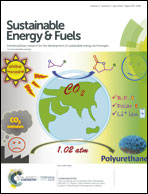Biofuel as an alternative shipping fuel: technological, environmental and economic assessment
Abstract
Fossil derived fuels available for application within the maritime sector have been dominated by heavy fuel oil (HFO), which is conventionally used in low speed (main) engines, and more refined fuels such as marine diesel oil (MDO), which is consumed in fast or medium speed engines. However, increasing fuel costs and regulatory pressure such as the restrictions placed on sulphur content have increased interest in the use of alternative fuels. A number of alternative fuels have been identified and may be viable for use within the maritime sector including straight vegetable oil (SVO) as an alternative to HFO in low speed engines, biodiesel to replace MDO/MGO in low to medium speed engines and bio-liquefied natural gas (bio-LNG) in gas engines using LNG. The potential sources of biomass feedstocks, conversion pathways and technologies are identified. The key parameters limiting their potential application are examined, in particular, availability, technological development, technical integration, and operational consequences. A proposed solution to overcome these limitations is recommended. The effective implementation of these strategies will enable the more widespread use of biofuels in marine applications, significantly reducing emissions from ships and improving global air quality and also protecting the ecological environment.



 Please wait while we load your content...
Please wait while we load your content...